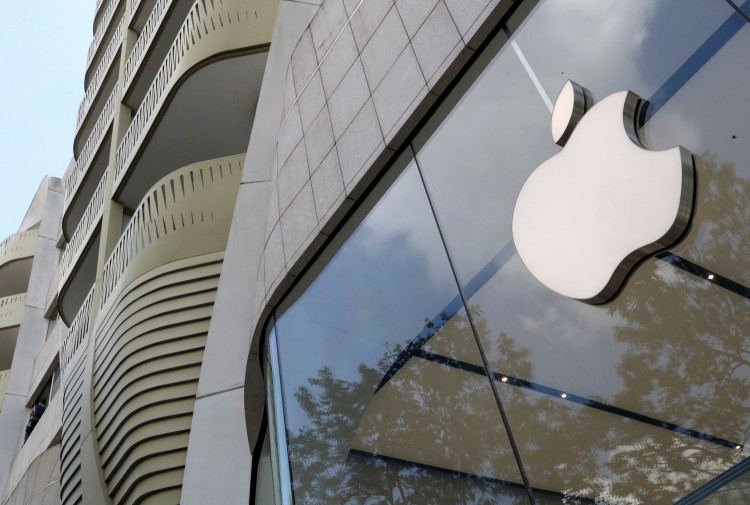On January 15, Apple China launched an unusual promotional event on its official website, offering discounts on various products from January 18 to 21. This included a 500 yuan price reduction on all four models of the iPhone 15 series, up to 800 yuan off certain laptop products, and price cuts on the iPad Pro and iPad Air. Such direct discounts on the Apple official website are rare, as typically, price reductions for new series are expected post-Spring Festival or during the mid-year "618" sales, often on third-party platforms.
Analysts believe Apple's unusual price reduction is due to a significant drop in iPhone series sales. Investment bank Jefferies reported a 30% year-over-year drop in iPhone sales in China for the first week of 2024. Another factor is Apple's recent struggles in the capital market, with investment banks including Barclays turning bearish on Apple, questioning its growth stock status.
Amid these bearish views, Apple's stock price has dropped over 6% from its historic closing high a month ago, with its market value momentarily surpassed by Microsoft.
Apple's iPhone 15 series has faced tepid market response in China. According to a Counterpoint Research report, sales of the iPhone 15 series in the first 17 days post-launch in China were down by 4.5% compared to the iPhone 14 series, facing continuous challenges. Jefferies analysts attribute the sales decline to fierce competition, particularly from domestic brands like Huawei. In Q4 2023, Huawei's share in the Chinese smartphone market grew by approximately 6%.
Jefferies predicts that Apple will continue to face pressure from local Chinese brands in 2024, forecasting a double-digit decline in Apple's shipments, while Huawei's market share is expected to expand. Huawei's global smartphone shipments are projected to reach about 64 million units in 2024, significantly higher than less than 35 million estimated for 2023.
Counterpoint's Senior Analyst Ivan Lam noted that with Huawei's rapid recovery, its smartphone business will become a crucial revenue pillar again, pressuring other manufacturers to respond to Huawei's return. As per Counterpoint, Huawei's Q3 sales rank sixth, but with a 37% year-over-year growth and a 12.9% market share.
Huawei's resurgence is particularly evident in the high-end market segment. BCI data shows that in November, Huawei held approximately 22.3% of the market share in the above 4000 yuan price range, a year-over-year increase of 8.8%, trailing only Apple.
Not only Huawei, but Xiaomi is also encroaching on Apple's high-end market share with its Xiaomi 14 series. In November, Xiaomi's high-end smartphone market share grew 11.8% year-over-year to 14.4%, following Apple and Huawei.
Apple's challenges aren't just limited to sluggish iPhone sales. The company's lack of significant innovation amid the current AI wave has led analysts to question its status as a growth stock. Hedgeye has listed Apple as its latest short target, citing weak revenue growth prospects until 2025 due to iPhone sales slumps, lack of innovation, and increased competition from Microsoft in AI.
Barclays downgraded Apple's stock rating from "hold" to "underweight" for the first time since 2019, slightly reducing the target price from 161 to 160 USD. Barclays anticipates slowed growth in Apple's services business, increased regulatory risks, diminishing ecosystem returns, and warns of unsustainable stock price growth given the high valuation and consistent performance weakness.
Apart from price reductions, Apple is betting on its mixed-reality headset Vision Pro. Priced at 3499 USD, Vision Pro will start pre-orders on January 19 and launch on February 2. Analyst Ming-Chi Kuo, known for his Apple predictions, stated that the market response to Vision Pro is crucial for Apple and its supply chain this year. If Vision Pro doesn't sell out instantly, it will be below expectations, impacting Apple and its industry chain.






